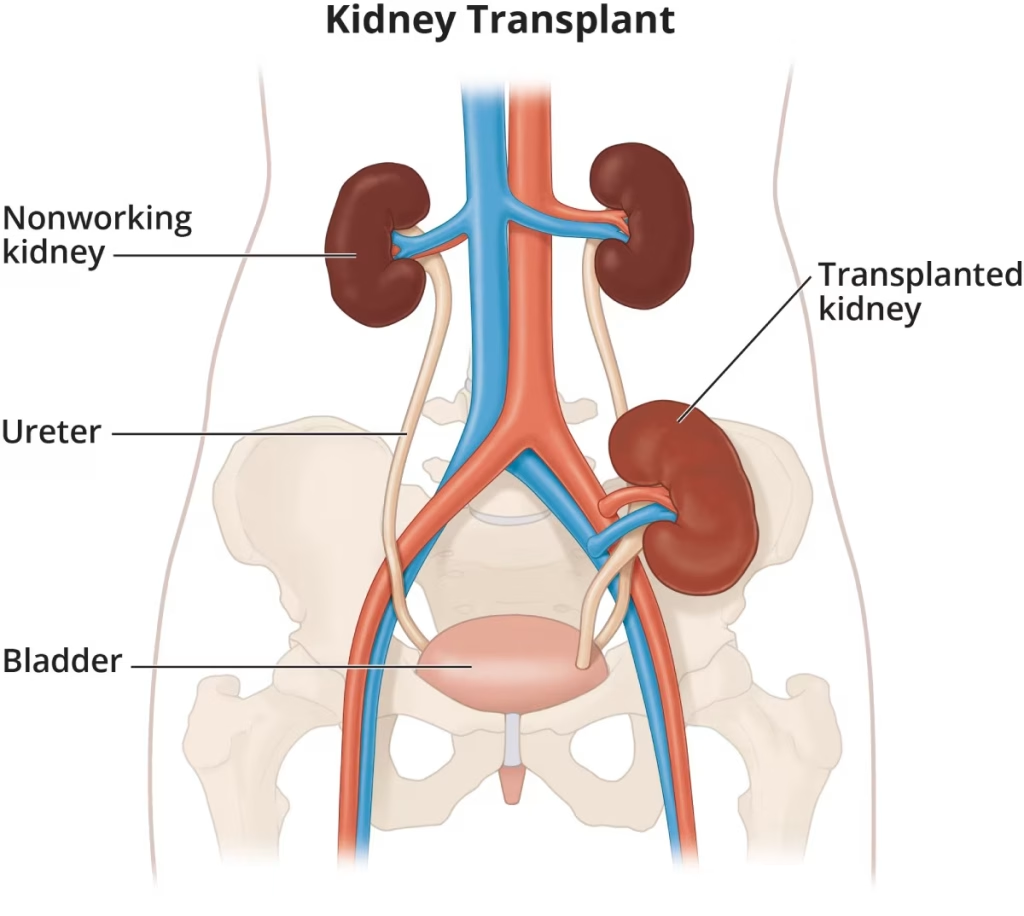Dr. Ravi Nagar
Menu
Emergency? Call us!
+91 7869966988
+91 7869966988

Renal transplant, also known as kidney transplantation, is a surgical procedure used to transplant a healthy kidney from a donor in patient with diseased or damages kidney. This treatment is often considered for patients with end-stage renal disease (ESRD) or severe chronic kidney disease, where the kidneys are no longer able to effectively filter waste and excess fluids from the blood.
Key Aspects of Renal Transplant:
Renal transplant offers a viable and often life-changing option for individuals with severe kidney disease, providing them with the potential for restored kidney function and an improved quality of life.
Arteriovenous fistula (AVF) creation is a surgical procedure used primarily for patients undergoing long-term dialysis treatment for chronic kidney disease. An AVF is a direct connection between an artery and a vein, created to provide a reliable and durable access point for dialysis. This access point allows for efficient blood flow and facilitates the removal and return of blood during the dialysis process.
Key Aspects of Arteriovenous Fistula Creation:
Post-Procedure Care:
After AVF creation, patients need to follow a care regimen that includes regular monitoring to ensure proper maturation of the fistula, avoiding activities that could strain the access site, and periodic assessments by healthcare providers.
Arteriovenous fistula creation is a critical procedure for individuals requiring dialysis, providing a vital and durable access route for effective blood filtration and improving the overall quality of life for patients with chronic kidney disease.